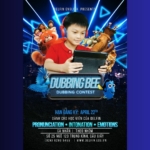Most – Mostly – Almost: Phân biệt và cách dùng
Nội dung bài học
Một vài ví dụ
Trước hết, cùng xem qua một vài ví dụ có xuất hiện 3 từ này nhé.
- Most students are now familiar with online learning.
- Nowadays, almost all students have had some experience learning online.
- Most of the students are now familiar with online learning.
- Almost all of the students are now familiar with online learning.
- The audience, mostly teenagers, were driven crazy by the groups’ new dances.
- I was mostly interested in how they did it, not the final results.
- She was the most upset in the family.
- She was most upset when you called her a liar.
- I am trying to make the most of the opportunity to learn from top business leaders.
- You are almost correct.
Phân tích các ví dụ
- Most students are now familiar with online learning.
- Nowadays, almost all students have had some experience learning online.
=> Trong câu số 1 và số 2, “most” và “almost all” đều có cùng nghĩa là hầu hết (a very large number of) và đi với danh từ không xác định để nói đến một tập đối tượng chung.
Điểm khác biệt duy nhất là “almost” không đi liền trước danh từ mà phải có “all”, vì “most” có chức năng tính từ, có thể đi liền trước danh từ, còn “almost” là trạng từ, bổ nghĩa cho “all” và do đó không đi liền trước danh từ.
- Most of the students are now familiar with online learning.
- Almost all of the students are now familiar with online learning.
=> Điểm khác biệt ở câu 3, 4 là chúng ta đang nói đến một tập đối tượng học sinh xác định – có thể ngầm hiểu là học sinh của trường này chẳng hạn, chứ không phải là học sinh nói chung như trong câu 1, 2.
- The audience, mostly teenagers, were driven crazy by the groups’ new dances.
- I was mostly interested in how they did it, not the final results.
=> “Mostly” trong câu 5, 6 có chức năng trạng từ, có nghĩa là “chủ yếu”, “phần lớn là”.
- She was the most upset in the family.
- She was most upset when you called her a liar.
=> “The most” chính là dạng so sánh hơn nhất (superlative form) của tính từ much/ many. Câu 1 đang so mức độ khó chịu của cô ấy với mức độ khó chịu của các thành viên khác trong gia đình, và cô ấy thể hiện mức độ khó chịu cao nhất (the most upset).
Câu 2: “most + tính từ” khi không có “the” đồng nghĩa với “extremely” (Cô ấy cực kì khó chịu khi bị gọi là kẻ nói dối).
Tương tự ta có câu: It’s most kind of you. – Anh thật là tử tế quá. (“most” khi được sử dụng với nghĩa này thường làm cho câu mang sắc thái trang trọng.)
- I am trying to make the most of the opportunity to learn from top business leaders.
=> “Make the most of something” có nghĩa là “tận dụng tối đa” – Tôi đang cố gắng tận dụng tối đa cơ hội để học hỏi từ những nhà lãnh đạo doanh nghiệp hàng đầu.
10. You are almost correct.
=>Khi ”almost” được sử dụng trước một tính từ, nó thực hiện chức năng của một trạng từ, và có nghĩa là “nearly” – gần như.
Luyện tập
Let’s put everything together. Chúng ta thử kiểm tra cách hiểu về 3 từ most, almost và mostly qua bài tập dưới đây nhé. Đáp án đã được công bố trong video bài giảng.
- The kids were most/ the most thrilled to see their dad.
- Almost/ Most parents don’t want their children to hang out with strangers.
- Almost/ Most of the students in the class got high scores on the test.
- Almost/ Most all of the employees hasn’t much experience before.
- Don’t shout! I’m most/ almost deaf here.
- Make most/ the most of your youth by travelling and learning about the world.
- Dana is most/ the most experienced among us.
- Most/ Most of the animals in the zoo come from foreign countries.
- I’m most/ almost obliged for your help.
- You are most/ almost there. Just try a little more.
➤ Fanpage: https://www.facebook.com/delfinenglish/
➤ Website: www.delfin.edu.vn
➤ Youtube: https://www.youtube.com/c/delfinenglish
➤ Email: info@delfin.edu.vn
➤ Address: 39 ngõ 68, Trung Kính, Cầu Giấy, Hà Nội
➤ Hotline: (024) 6293 5455 – 0982 325 483






![[FACES OF DELFIN] – Nghĩa Dũng và tin vui về điểm 8.0 IELTS](https://delfin.edu.vn/wp-content/uploads/2023/04/207871521863197-150x150.jpg)


